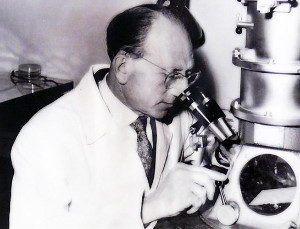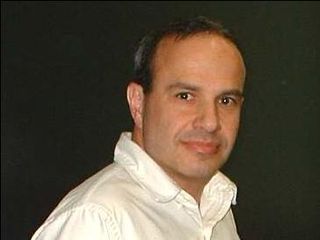A Quote by Jacob Bronowski
Many theories of the ancient world seem terribly childish today, a hodge-podge of fables and false comparisons.But our theories will seem childish five-hundred years from now.Every theory is based on some analogy, and sooner or later the theory fails because the analogy turns out to be false. A theory in its day helps to solve the problems of the day.
Related Quotes
Managers are already voracious consumers of theory. Every time they make a decision or take action, it's based on some theory that leads them to believe that action will lead to the right result. The problem is, most managers aren't aware of the theories they're using, and they often use the wrong theories for the situation.
... one of the main functions of an analogy or model is to suggest extensions of the theory by considering extensions of the analogy, since more is known about the analogy than is known about the subject matter of the theory itself ... A collection of observable concepts in a purely formal hypothesis suggesting no analogy with anything would consequently not suggest either any directions for its own development.
Scientific theories need reconstruction every now and then. If they didn't need reconstruction they would be facts, not theories. The more facts we know, the less radical become the changes in our theories. Hence they are becoming more and more constant. But take the theory of gravitation; it has not been changed in four hundred years.
Superstring theories provide a framework in which the force of gravity may be united with the other three forces in nature: the weak, electromagnetic and strong forces. Recent progress has shown that the most promising superstring theories follow from a single theory. For the last generation, physicists have studied five string theories and one close cousin. Recently it has become clear that these five or six theories are different limiting cases of one theory which, though still scarcely understood, is the candidate for superunification of the forces of nature.
Moral theory develops from the divine command theory of medieval Christian philosophy, mixed up with a bit of ancient pagan virtue theory, to the purely secular moral sentiment and interpersonal reaction theories of Smith and Hume, to Kant's attempt to restore command theory but with something supersensible in the individual rather than God as the source of authority.
The scientific theorist is not to be envied. For Nature, or more precisely experiment, is an exorable and not very friendly judge of his work. It never says "yes" to a theory. In the most favorable cases it says "Maybe," and in the great majority of cases simply "No." If an experiment agrees with a theory it means for the latter "Maybe," and if it does not agree it means "No." Probably every theory will some day experience its "No" - most theories, soon after conception.
Catastrophe Theory is-quite likely-the first coherent attempt (since Aristotelian logic) to give a theory on analogy. When narrow-minded scientists object to Catastrophe Theory that it gives no more than analogies, or metaphors, they do not realise that they are stating the proper aim of Catastrophe Theory, which is to classify all possible types of analogous situations.
Biochemists and biologists who adhere blindly to the Darwinism theory search for results that will be in agreement with their theories and consequently orient their research in a given direction, whether it be in the field of ecology, ethology, sociology, demography (dynamics of populations), genetics (so-called evolutionary genetics), or paleontology. This intrusion of theories has unfortunate results: it deprives observations and experiments of their objectivity, makes them biased, and, moreover, creates false problems.
Newton's theory is not 'not right', it just does not cover all distances. Contrary to popular belief, theories in science are not proven wrong, they are just replaced by more complete and convenient theories. To sound provocative, even the geocentric theory was never "proven" wrong, it is just not as convenient as the heliocentric theory, since it requires endless epicycles.
People sometimes try to score debating points by saying, Evolution is only a theory. That is correct, but it's important to understand what that means. It is also only a theory that the world goes round the Sun - it's just a theory for which there is an immense amount of evidence. There are many scientific theories that are in doubt. Even within evolution, there is some room for controversy. But that we are cousins of apes and jackals and starfish, let's say, that is a fact in the ordinary sense of the word.
One of the most difficult features of direct experience is that it is unfiltered by any theories or expectations. It's hard to observe without imposing a theory to explain what we're seeing, but the trouble with theories, as Einstein said, is that they explain not only what is observed, but what can be observed. We start to build expectations based on our theories.



































